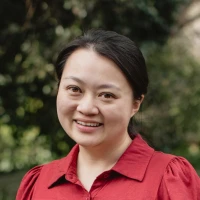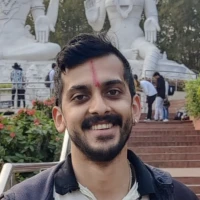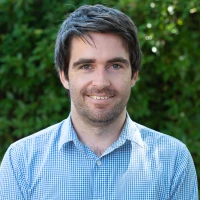 Top Tips for Thriving in Medical School
Top Tips for Thriving in Medical School
 Dr Hannah Pham
Dr Hannah Pham


Research. As doctors and medical students, this single word can successfully evoke a vast array of negative emotions - from dread, to annoyance, to boredom, to frustration, and to contempt. As a doctor who has been involved in research for more than six years, I can promise that I've felt these emotions, sometimes all at once!
However, beyond the negative emotions that it can stir, it can also bring joy, satisfaction, and a deep sense of purpose and achievement. It can take you to the edge of knowledge. And once you're there, it can be an incredible form of self-expression that can have you venturing into completely new territories of discovery. Attaining these insights can be thrilling in its own way, however the fruits of this discovery can also be of critical importance to humanity (or animals, or the planet). Crucially, it also can allow you to help move the world further and potentially make a very tangible impact for the sick and vulnerable.
I developed an interest in research during my years of undergraduate study in the domain of Medical Anthropology. Really, it started with just reaching out to those actively doing research and asking if I could lend a helping hand, while taking every possible opportunity to learn along the way. I began to pursue research at a greater capacity during my Masters of Public Health degree prior to Medicine, where I became involved in numerous projects relating to suicide mortality risk, effectiveness of radiation oncology, access to healthcare in impoverished settings, the highest forms of drug-resistant tuberculosis, and many other topics. During that time, I worked at great lengths to develop a comprehensive skillset in many spheres of research. After that journey of growth and learning, I began to pursue research projects independently prior to, and during, medical work and the work has seemed to have taken on a life of its own. I’ve grown to love working in research teams large and small, and have found deep joy in mentoring others in the research process. It’s a great joy to be involved in diverse topics, especially because it allows you to always learn something new. I recently hit a personal milestone of 40 publications, but even now I feel like the journey has just begun!
One of my favourite parts of being involved in the research process had been the capacity of the work to transcend borders, both real and imagined. Doing research can truly have a global impact. Hence, rather than helping one specific person, it has the potential to help countless people - far beyond what you might imagine. Furthermore, though it can be a long and sometimes arduous process to take a research project to completion, once that work is published it can truly take on a life of its own. Sometimes it means reaching places and people that you could have never imagined - such as offering insights to a rural doctor in Vietnam, a nurse in Argentina, or a social worker in Madagascar. It personally brings a special kind of joy to wake up in the morning and receive an email from a specialist across the world about how your work is helping to change the world. Speaking from firsthand experience, one of the most meaningful works that I’ve ever produced was evaluating the health outcomes and unfathomable hardships faced by survivors of sexual violence during genocides; producing that work has taken me places, both literally and figuratively, and created something that can have far-reaching implications for some of the most vulnerable people on the planet. This has been amongst the most important things that I have done in my entire life.
Some people who I have met have been under the impression that research is largely for the domain of public health. While I absolutely love public health and encourage all to be involved in this domain, it is undoubtedly the case that research is of the utmost importance for clinicians as well. Clinical medicine itself is reliant on a solid foundation of evidence. Production and consumption of research provides this evidence, and hence the basis of the work we do as doctors. From identifying risk factors for mortality for certain patients, to determining the most appropriate medical regimen for a particular condition, to evaluating ways to improve quality of care on a day-to-day basis – all of this comes from research!
If you’re thinking about research, but are on the fence because you feel that you’re not quite ready, or not yet competent - I would say go for it, because you’ve got nothing to lose! Taking classes or watching lectures on the research process, methodologies, statistics (I promise it can be fun), and the publication process can be a fantastic way to upskill. In terms of actually getting involved, you can reach out to professors and researchers at your university, or even just strike conversation with clinicians at your hospital about any ongoing projects. People can be really kind and welcoming - you’ve just got to ask. When new members are willing to contribute and are aiming to learn, many researchers are quite open to having new members involved. This can hold true, even when such new members have no prior experience; learning through experience can be a fantastic way to learn. From there, you can begin to develop an understanding of what types of projects you like to be involved in, such as systematic reviews, large-scale data analyses, clinical trials, or qualitative approaches. You can also begin to recognise the particular topics of research that appeal most to you. As you do more and learn more, the process continues to get easier, and more enjoyable!
Whether your goal is to become a published author, develop deeper expertise, or simply become a better doctor, I encourage every clinician to engage in research in whatever capacity they can. It will allow you to learn, to disseminate knowledge, to understand the research process (from conception to publication) and to better recognise how progress can be made to improve the well-being of the patients that you serve.
View Dr Karan Varshney's research profile.
When not doing research, Dr Varshney is an Associate Editor for eMedici.
Karan is an Associate Editor & Project Coordinator for eMedici. He is a currently a medical intern at South West Healthcare - but prior to becoming a doctor, has worked extensively in diverse health care settings such as a children's hospice, a neuropsychiatric ward, and a crisis/suicide hotline. With two previous Masters' degrees in Public Health and Business Administration, he has extensive experience in health research and epidemiological work. Karan has a keen fascination in understanding how private and public entities can work together to effectively address the most significant health issues of our era. Karan has been involved with eMedici since 2022, while he was a medical student. In the spare time that he has available, Karan loves to explore language learning, and to explore his cultural and spiritual roots.
Karan on the Basic Pathological Sciences (BPS) exam:
In 2024, I decided to sit the BPS Exam, and I have to say that studying and preparing for this exam was a fulfilling experience. However, it was also a tiring process (even though it definitely didn't need to be!). I found that when preparing, there was a clear lack of adequate available resources to assist with studying. As a result, preparation for the exam entailed reading (and re-reading) hundreds of pages in a textbook in a grossly inefficient manner that got quite repetitive, quite fast. With this in mind, I strongly feel that eMedici's BPS resource can serve as a valuable means for one to get the most out of the studying process in terms of both efficiency, and overall enjoyment in the learning process. We have spent many hours carefully designing these materials in a manner that tests important concepts directly from the BPS syllabus, thereby ensuring the maximum possible study value. I truly hope that whoever uses this material will find great benefit in learning for this exam, while also hopefully having some fun along the way!
 Top Tips for Thriving in Medical School
Top Tips for Thriving in Medical School
 Dr Hannah Pham
Dr Hannah Pham
 Setting Yourself Up for Success in Medical School
Setting Yourself Up for Success in Medical School
 Darren Tan
Darren Tan
 A Day in the Life of a Rural Generalist
A Day in the Life of a Rural Generalist
 Dr Addison Davis
Dr Addison Davis
 Life Lessons in Medicine: What To Do When You Feel Like Everyone Else Has It All Figured Out
Life Lessons in Medicine: What To Do When You Feel Like Everyone Else Has It All Figured Out
 Dr Karanjot Lall
Dr Karanjot Lall